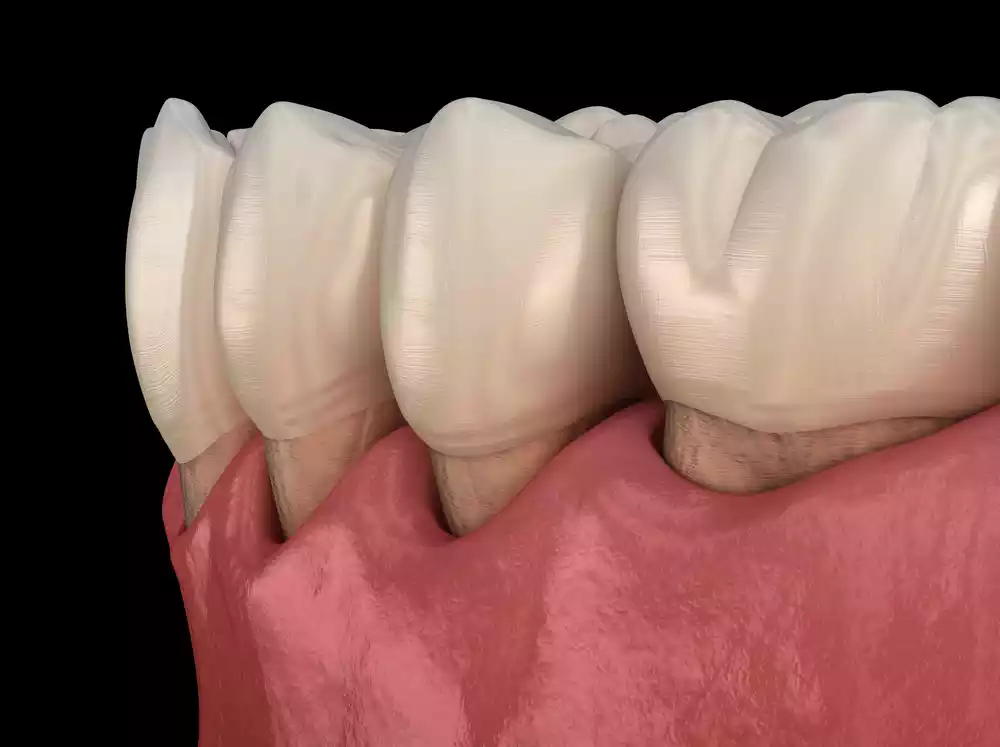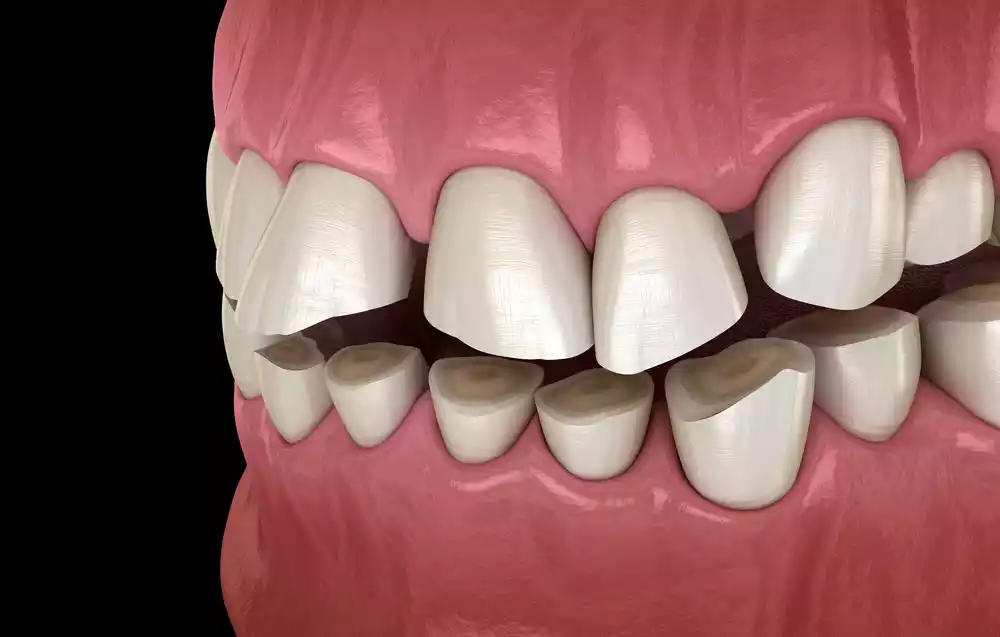Do you cringe at the thought of biting into an ice cream cone or sipping on a hot cup of coffee?
If so, you may be one of millions of people who experience tooth sensitivity. Understanding the causes of teeth sensitivity can help you find solutions to alleviate the discomfort and enjoy your favorite foods and drinks again.
Tooth sensitivity occurs when the protective layer of enamel on your teeth wears down, exposing the softer underlying layer called dentin. This can happen due to a variety of factors such as tooth decay, gum disease, teeth grinding, or even using a hard-bristled toothbrush. Common solutions for teeth sensitivity include using desensitizing toothpaste, practicing good oral hygiene, avoiding acidic foods and drinks, and seeing a dentist for further evaluation.
The Role of Enamel in Tooth Sensitivity
The enamel, the outer layer of our teeth, plays a crucial role in protecting the sensitive inner layers from external stimuli. It acts as a strong shield, shielding the dentin and pulp from temperature changes, acidic foods, and bacteria. However, over time, the enamel can become thinner or wear away, exposing the delicate dentin underneath.
The Thinning of Enamel
Several factors can contribute to the thinning of enamel. One common cause is tooth erosion, which occurs when the acid in foods and beverages erodes the enamel gradually. This erosion is commonly seen in people who consume excessive amounts of acidic or sugary drinks, regularly acid reflux sufferers, or individuals with bulimia nervosa. Another cause is abrasive toothbrushing, where using a hard-bristled toothbrush or brushing too forcefully can weaken the enamel over time. Additionally, teeth grinding or clenching can wear down the enamel, making the teeth more sensitive.
Wearing Away of Enamel
Aside from thinning, enamel can also wear away, particularly near the gumline or the biting surfaces of teeth. This can occur due to improper brushing techniques, such as using a sawing motion or brushing with excessive force. It can also be caused by frequent consumption of highly acidic foods and beverages, which can gradually erode the enamel.

Gum Recession: A Gateway to Teeth Sensitivity
Gum recession is another common cause of teeth sensitivity. As our gums recede, the sensitive tooth roots become exposed, increasing susceptibility to pain and discomfort. Several factors can contribute to gum recession, including:
Poor Oral Hygiene
Inadequate dental hygiene practices can lead to gum disease, which is a major cause of gum recession. When plaque and tartar accumulate along the gumline, it can cause inflammation and infection, leading to the deterioration of the gum tissue. Ultimately, this can result in the gums pulling away from the teeth, exposing the roots.
Aggressive Brushing
Brushing too hard or using a hard-bristled toothbrush can also contribute to gum recession. The excessive force applied during brushing can traumatize and damage the delicate gum tissue, causing it to recede over time.
Genetics
Some individuals are genetically predisposed to have thinner gum tissue, which makes them more susceptible to gum recession. These individuals may need to take extra precautions to maintain gum health and prevent sensitivity.

Tooth Decay and Sensitivity
When it comes to understanding teeth sensitivity, it’s essential to examine the connection between tooth decay, cavities, and the heightened sensitivity that often accompanies them. Tooth decay, also known as dental caries, occurs when bacteria in the mouth produce acids that eat away at the outer layer of the teeth, known as enamel. This process can cause tiny holes, or cavities, to form in the teeth. While tooth decay can lead to a host of other dental problems, it is also a common cause of teeth sensitivity.
The Link Between Tooth Decay and Sensitivity
So, why does tooth decay lead to heightened sensitivity? Well, once the enamel is eroded, it exposes the underlying dentin layer of the tooth, which contains microscopic tubes called dentinal tubules. These tubules connect to the nerve endings within the tooth, allowing sensations to reach the nerves more easily. This increased exposure to stimuli, such as hot or cold foods and drinks, can trigger a painful reaction, resulting in teeth sensitivity.
Preventing Decay and Sensitivity
Preventing tooth decay is crucial to avoiding the discomfort of sensitivity. Regular and thorough dental hygiene practices such as brushing twice a day and flossing can help remove plaque and bacteria that contribute to decay. Additionally, limiting consumption of sugary foods and drinks plays a significant role in preventing tooth decay. Fluoride toothpaste and mouth rinses are also beneficial in strengthening enamel and making teeth more resistant to decay.
Seeking Professional Intervention
If you are experiencing teeth sensitivity, it is important to consult with a dental professional. They can assess the underlying cause of your sensitivity and determine the appropriate treatment. In some cases, restorative procedures such as fillings or dental bonding may be necessary to repair the damaged tooth and alleviate sensitivity. Don’t delay – schedule an appointment with Molar House, your best dentist in Tijuana, today and take the first step toward a pain-free, confident smile!

Bruxism: Its Impact on Teeth Sensitivity
Have you ever woken up with a sore jaw or noticed that your teeth are showing signs of wear? If so, you might be suffering from bruxism, a condition characterized by grinding or clenching of the teeth. This habit, often done unconsciously during sleep, can have a significant impact on teeth sensitivity.
The Enamel Erosion Effect
When we grind or clench our teeth, immense pressure is exerted on the enamel, which is the protective outer layer of our teeth. Over time, this constant friction can wear down the enamel, exposing the dentin underneath. Dentin contains tiny fluid-filled tubes that lead to the nerve endings within the tooth, making it more susceptible to sensitivity and pain.
Identifying Bruxism and Seeking Treatment
Recognizing the signs of bruxism can be challenging since it is mostly an unconscious habit. However, if you experience recurrent headaches, jaw pain, or have noticed excessive tooth wear, it is worth speaking to your dentist. They can assess your teeth and jaw for signs of grinding and provide guidance on treatment options.
There are several methods to alleviate the effects of bruxism and minimize tooth sensitivity. One common approach is the use of a nightguard, a custom-made dental appliance that fits over your teeth to cushion the impact of grinding. This not only protects your teeth from further enamel erosion but can also help alleviate any associated discomfort.

Preventive Measures for Sensitive Teeth
If you are tired of dealing with the discomfort of sensitive teeth, worry not! There are several preventive measures you can take to alleviate the problem.
1. Proper Oral Hygiene
To keep your teeth healthy and prevent sensitivity, it is crucial to maintain a good oral hygiene routine. This includes brushing your teeth at least twice a day with a soft-bristled toothbrush and fluoride toothpaste. Using a gentle, circular motion while brushing will help reduce the risk of enamel erosion and gum recession, which can lead to tooth sensitivity.
2. Limit Acidic Foods and Beverages
Reducing your consumption of acidic foods and beverages can greatly help in preventing tooth sensitivity. Acidic substances can erode the enamel and expose the dentin, leading to sensitivity. Limit your intake of citrus fruits, carbonated drinks, and acidic condiments. If consumed, rinse your mouth with water afterward to neutralize the acidity.
3. Use a Desensitizing Toothpaste
One of the simplest solutions for sensitive teeth is using a desensitizing toothpaste. These toothpastes contain ingredients such as potassium nitrate or stannous fluoride, which help block the nerve signals that cause sensitivity. Use the toothpaste regularly as directed to experience lasting relief.
4. Regular Dental Check-ups
Don’t underestimate the importance of regular dental check-ups in preventing teeth sensitivity. Your dentist can detect early signs of enamel erosion or gum recession, allowing for timely intervention and treatment. Schedule dental appointments every six months or as recommended by your dentist to stay on top of your oral health. Take action for a healthier smile – book your next check-up with Molar House and keep teeth sensitivity at bay!






